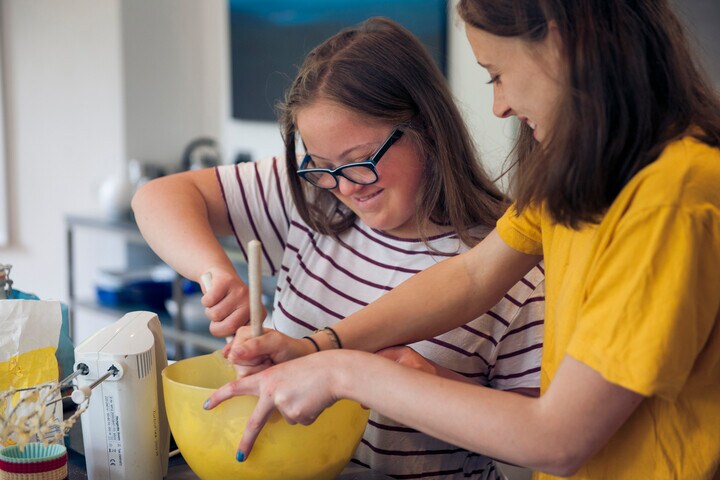8 Math Activities to Prevent Summer Slide
byKristina Cappetta
5 min to read
While summer is a time to relax and spend time with friends and family, too much downtime can lead to the “summer slide.” Also known as summer learning loss, the summer slide refers to the learning loss students experience during the summer break when they are not in a traditional school setting. Research has shown that students lose one to three months of learning in math during their summer vacation, which can make returning to school more difficult. But there are small things you can do throughout the summer break to help prevent your student’s math learning loss.
How Can I Prevent Summer Learning Loss for My Student?
Introducing fun math activities is one way you can help your student to stop summer slide. Research shows that on average students lose approximately 2.6 months of learning in math over the summer. And while many summer enrichment programs include reading activities, it is easy to overlook math. Introducing math games can prevent summer learning loss by making learning fun and engaging by showing how math is as much a part of everyday life as reading.
Here are some ideas to try:
Encourage Addition Practice “On the Go”
Math “on the go” is a fun activity because it shows students how math is a part of our everyday lives. Take your student with you to the grocery store; have them bring a notepad and ask them to add up the prices of your groceries in your cart before you checkout. Using their addition skills, they should have a good idea of how much you’re going to spend before you pay. When you’re done, compare their total to the actual total to see how close they came. If they came close enough to the total, consider giving them a prize for their hard work.
Math Scavenger Hunt
Organize a math-themed scavenger hunt where your child has to solve math problems to find hidden clues or objects. This can be a great activity to prevent summer slide because you can create age-appropriate math problems that challenge their skills while they have fun finding the items.
You can use simple addition and subtraction clues for elementary students and step up the game for older kids by incorporating geometry and algebra problems. The idea is to challenge them, but not to make the problems so hard that they get discouraged and disinterested in the activity.

Cook or Bake Together
Cooking and baking require following directions and using specific math skills like measuring ratios in a recipe. For example, younger students can discover the difference between 1/3 cup and ¼ cup of an ingredient. This is an effective way for them to see how math skills can be applied to everyday situations.
Calculate the Tip
Percentages are used every day to compare numbers, describe discounts, and justify sales tax. Prevent summer learning loss by seeing if your student can calculate the tip when eating out so they can determine how these percentages are applied. For example, if you go out to lunch with your student and want to leave a 20% tip, allow them to take the lead and determine what the total amount will be.
Take Math Games Outside
Make the most of the summer weather by integrating math games while students play outside. Ask children questions to get them thinking about ways they can practice math with their surroundings, like estimating the height of trees based on the length of their shadows. The key is to spark their curiosity and to build their confidence byusing math concepts outside of the classroom.
Play Card Games
Playing cards can help students of all ages think strategically, improve math skills, and avoid the summer slide. “Math War” is a popular game where students flip over cards. The player with the highest card value wins the round and takes both cards. You can vary the game by adding, subtracting, or multiplying the cards’ values.
Playing “I Spy” with cards can also be an effective learning tool. Lay out the cards in a grid. One player then says, “I spy two cards that equal 10,” and another player tries to find the right ones.
If you need some game inspiration, take a look at this Math War Game from a Connections Academy teacher on the Connections Academy YouTube channel.
Play Board Games
Look for board games that use money or make you keep score. Monopoly and Scrabble are good places to start. Players must constantly keep track of their money in Monopoly to see if they have enough to buy properties. In Scrabble, players have to add up the scores of the words they are making to see who has the most. Playing these types of games allows families to spend time together while working to stop summer slide.
Use Educational Apps
Educational apps can be a fun way to reduce summer learning loss. Math apps allow kids to play fun, age-appropriate games that also teach a lesson.
Some ideas for elementary school students include LeapFrog Academy Learning and Marble Math Junior. Middle schoolers may enjoy Math Snacks or Buzzmath, while high school students can try the popular math game, Shmoop.
Connections Academy is committed to helping Learning Coaches and parents discover various math resources year-round and ones to help prevent summer slide. If you want to learn more about our online school programs, visit us here to request information.



